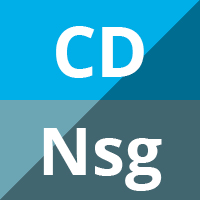
Motor imagery for gait rehabilitation after stroke
Abstract Background Motor imagery (MI) is defined as a mentally rehearsed task in which movement is imagined but is not performed. The approach includes repetitive imagined body movements or rehearsing imagined acts to improve motor performance. Objectives To assess the treatment effects of MI for enhancing ability to walk among people following stroke. Search methods […]

Carotid endarterectomy for symptomatic carotid stenosis
Abstract Background Stroke is the third leading cause of death and the most common cause of long‐term disability. Severe narrowing (stenosis) of the carotid artery is an important cause of stroke. Surgical treatment (carotid endarterectomy) may reduce the risk of stroke, but carries a risk of operative complications. This is an update of a Cochrane […]

Citicoline for treating people with acute ischemic stroke
Abstract Background Stroke is one of the leading causes of long‐lasting disability and mortality and its global burden has increased in the past two decades. Several therapies have been proposed for the recovery from, and treatment of, ischemic stroke. One of them is citicoline. This review assessed the benefits and harms of citicoline for treating […]

Multiple versus fewer antiplatelet agents for preventing early recurrence after ischaemic stroke or transient ischaemic attack
Abstract Background Stroke is a leading cause of morbidity and mortality worldwide. Antiplatelet agents are considered to be the cornerstone for secondary prevention of stroke, but the role of using multiple antiplatelet agents early after stroke or transient ischaemic attack (TIA) to improve outcomes has not been established. Objectives To determine the effectiveness and safety […]

Endovascular therapy versus medical treatment for symptomatic intracranial artery stenosis
Abstract Background Intracranial atherosclerotic stenosis (ICAS) is an arterial narrowing in the brain that can cause stroke. Endovascular therapy and medical management may be used to prevent recurrent ischaemic stroke caused by ICAS. However, there is no consensus on the best treatment for people with ICAS. Objectives To compare the safety and efficacy of endovascular […]

Cerebrolysin for acute ischaemic stroke
Abstract Background Cerebrolysin is a mixture of low‐molecular‐weight peptides and amino acids derived from porcine brain that has potential neuroprotective properties. It is widely used in the treatment of acute ischaemic stroke in Russia, Eastern Europe, China, and other Asian and post‐Soviet countries. This is an update of a review first published in 2010 and […]

Mental practice for treating upper extremity deficits in individuals with hemiparesis after stroke
Abstract Background Stroke is caused by the interruption of blood flow to the brain (ischemic stroke) or the rupture of blood vessels within the brain (hemorrhagic stroke) and may lead to changes in perception, cognition, mood, speech, health‐related quality of life, and function, such as difficulty walking and using the arm. Activity limitations (decreased function) […]

Anti-inflammatory therapy for preventing stroke and other vascular events after ischaemic stroke or transient ischaemic attack
Abstract Plain language summary Anti‐inflammatory medications for preventing major heart events and strokes following ischaemic stroke (stroke due to a clot) or mini‐stroke Review question Do anti‐inflammatory medications have a role in preventing future serious heart conditions or stroke in people who have previously had a stroke or a transient ischaemic attack (TIA, or ‘mini‐stroke’) as the result of […]

Interventions for preventing depression after stroke
Abstract Background Depression is an important consequence of stroke that influences recovery yet often is not detected, or is inadequately treated. This is an update and expansion of a Cochrane Review first published in 2004 and previously updated in 2008. Objectives The primary objective is to test the hypothesis that pharmacological, psychological therapy, non‐invasive brain […]

Interventions for sexual dysfunction following stroke
Abstract Background Sexual dysfunction following stroke is common but often is poorly managed. As awareness of sexual dysfunction following stroke increases as an important issue, a clearer evidence base for interventions for sexual dysfunction is needed to optimise management. Objectives To evaluate the effectiveness of interventions to reduce sexual dysfunction following stroke, and to assess […]

